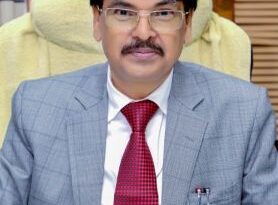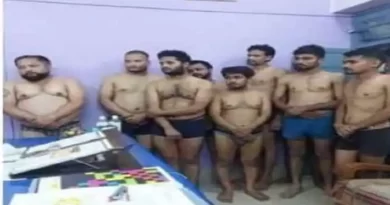Plea Filed Under Article 139 A (1) Seeking Transfer of PILs on Uniform Marriage Age from Delhi, Raj, HCs to Supreme Court
(Judicial Quest News Network)
A plea is filed in Supreme Court seeking the transfer of two pleas from the High Court of Delhi and Rajasthan to Supreme Court Under Article 139 A (1) “Uniform Minimum Age for Men and Women “in order to avoid multiplicity of litigations and conflicting views.
The Petitioner said that he is compelled to approach this court because in order to avoid multiplicity of the litigations & conflicting views on interpretation of Articles 14, 15, 21 and judgments on gender justice and gender equality, the Court may be pleased to transfer these PILs and decide them collectively.
It is further contended that petitioner challenged blatant ongoing discrimination against women, that is discriminatory ‘minimum age of marriage’ for men and women. While men are permitted to get married at the age of 21, women are married when they are just 18. The distinction is based on patriarchal stereotypes, has no scientific backing, perpetrates de jure and de facto inequality against women, and goes completely against the global trends.
Following provisions are responsible for this discriminatory bar:
▪ Section 60(1) of the Indian Christian Marriage Act, 1872;
▪ Section 3(1)(c) of the Parsi Marriage and Divorce Act, 1936;
▪ Section 4(c) of the Special Marriage Act, 1954;
▪ Section 5(iii) of the Hindu Marriage Act, 1955;
▪ Section 2(a) of the Prohibition of Child Marriage Act, 2006.
The differential bar discriminates against women thus contravenes the fundamental principles of gender equality, gender justice and dignity of women and offend Articles 14, 15, 21 of the Constitution and international conventions. This is so for the following reasons.
Seeking an authoritative pronouncement and to avoid multiplicity of litigation, a fresh plea is filed by Ashwini Kumar Updhayay through his lawyer Ashwini Kumar Dubey.
The petition avers that the fundamental basis of the legal system is that the dispute should be finally settled and when the same/similar facts are placed in different petitions before different Courts for the judicial test, there is a likelihood of divergence of views, different interpretations and contradictory appreciation of the materials placed before such Courts and in such a case, the aspiration of litigants to find finality to the disputes may be reduced more to a mirage than reality.
Expressing the facts it is daid that similar PILs are pending in two High Courts so respondents may face extreme difficulty in effectively conducting the same in different Courts. For this reason also, all these matters require to be withdrawn from the respective High Courts and be transferred to this Hon’ble Court so that all grounds-contentions can be decided by common judgment in order to ensure uniformity in directions. Moreover, the Judgment by this Hon’ble Court will be binding for all and also save precious time of the judicial system.
The petitioner states that Article 16(1)(a) of the CEDAW requires States who are parties to the Convention to eliminate discrimination against women in all matters related to marriage, and to ensure that women have the same and similar right like men to freely choose a spouse and enter into marriage with their full and free consent.
Universal trends have been cited and submitted that global trends point to a uniform age of marriage. More than 125 countries have uniform age of marriage for men-women. Noting this fact, NHRC, pursuant to National Conference on Child Marriage held in New Delhi on 29-30 August 2018, recommended that India follow suit and bring uniformity in the minimum age limits.
Under section 60 of the Indian Christian Marriage Act ,1872, the age of the man intending to be a married shall not be under 21 years, and the age of the woman intending to be married shall not be under 18 years.
in the alternative, direct the Centre Government to take appropriate steps to remove the anomalies in the minimum age of marriage and make it ‘gender neutral, religion neutral and uniform for all citizens’ in spirit of the Articles 14, 15, 21 and International Convention.



